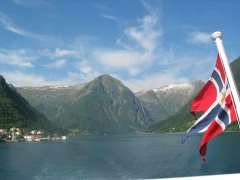Easyjet announced this week that it intends to start charging passengers for all luggage that they check into the hold. While they certainly aren’t the first airline to do this – Ryanair have charged passengers for checking in luggage for a year now – their reasoning for this has annoyed me greatly:
“It’s about getting people to pack smarter, travel lighter and travel cheaper,” Easyjet said.
How many people can easily take a holiday with just hand luggage? If you travel anywhere for more than three or four days, the amount of cleaning clothing you’ll require will quickly outgrow the space available in a small backpack, unless you plan to spend each day of your trip in a laundromat.
Add to that the modern traveller’s problems with what may and may-not be carried on-board a flight. Like to carry a pocketknife with you? You’ll need to check your baggage. Have liquid toiletries such as shaving cream, deodourant or sunscreen? You’ll need to check your baggage.
In fact, I would contend that the only travellers who don’t need to check their baggage are businesspeople on day-trips, or staying in expensive hotels where all required toiletries are provided for free – and these are the people who are least likely to choose to fly cattle-class on a budget airline.
This is clearly a money-making exercise. They know that the vast majority of their passengers simply cannot avoid checking in luggage, and now they intend to profit from it, under the guise of “packing smarter”.
It will be interesting to see the long term impact of these policies. Clearly the fee for carrying bags will rise, and as more passengers attempt to try flying with hand-luggage only, the queues for luggage-scanning will grow longer and it will become increasingly difficult to get passengers onboard quickly, while they block the aisles of the plane trying to lift their huge bags into the overhead lockers.
EasyJet and Ryanair may have shot themselves in the foot, over this one.
Links


Recent Comments